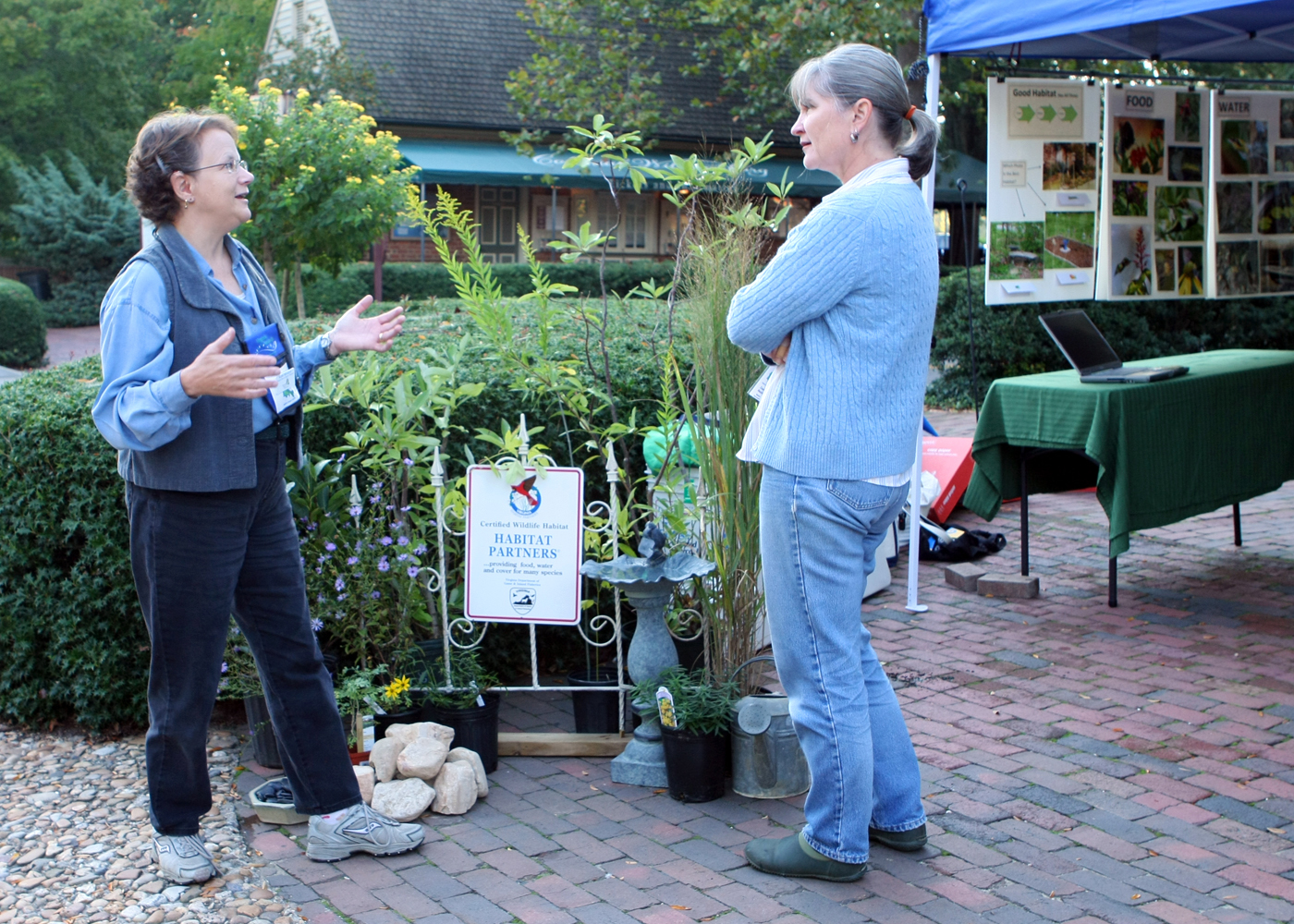Celebrating a decade of Virginia Master Naturalists

This year marks the 10th anniversary of the Virginia Master Naturalist program. In the decade since the national program started in the commonwealth, the organization has trained several thousand Master Naturalists, who have contributed 526,583 hours of volunteer service — the equivalent of well over 250 years of full-time employment.
Master Naturalists have installed bluebird birdhouses, counted monarch butterflies, built forest trails, helped schoolchildren plant wildflowers, yanked invasive species from parklands, and much more. Their work, which provides education, outreach, and service to support Virginia’s natural resources and public lands, is calculated to be worth nearly $12.4 million to date, said Alycia Crall, program coordinator.
“Close to 3,500 Master Naturalists have been trained since the program began in Virginia,” Crall said. “Many of them are still active volunteers, donating at least 40 hours of work each year.”
On the average, each active volunteer reaches more than 70 youth and adults annually through educational programs or informal projects. Master Naturalists have contributed to more than 70 scientific studies, advancing knowledge about Virginia’s natural resources. Study subjects have ranged from frogs to American chestnuts to spring beauty flowers to osprey. Master Naturalists have cared for more than 2,500 acres of public lands by removing non-native species, maintaining trails, and planting native flowers.
The organization has grown from an initial 10 chapters to 29, each making a significant positive impact on Virginia’s natural resources. The Virginia Master Naturalist program is open to anyone who wants to learn more about nature. While participation is limited to those 18 or older (or at least 14 years old when accompanied by an adult), many chapters offer Junior Master Naturalist programs for younger children through 4-H clubs or schools.
Participants learn basic ecology and scientific principles as well as ornithology, geology, botany, zoology. They start out by completing 40 hours of basic training offered through a local chapter. An additional eight hours of advanced training are required each year.
“I like marking the seasons by seeing what’s happening out there,” said Brenda Graff, a master naturalist in Christiansburg. “I especially like collecting data that can help the environment.”
Virginia Master Naturalist Program is jointly sponsored by the Virginia Cooperative Extension and the Virginia departments of Conservation and Recreation, Environmental Quality, Forestry, and Game and Inland Fisheries, as well as the Virginia Museum of Natural History. The program is based in the Department of Forest Resources and Environmental Conservation in Virginia Tech’s College of Natural Resources and Environment.







